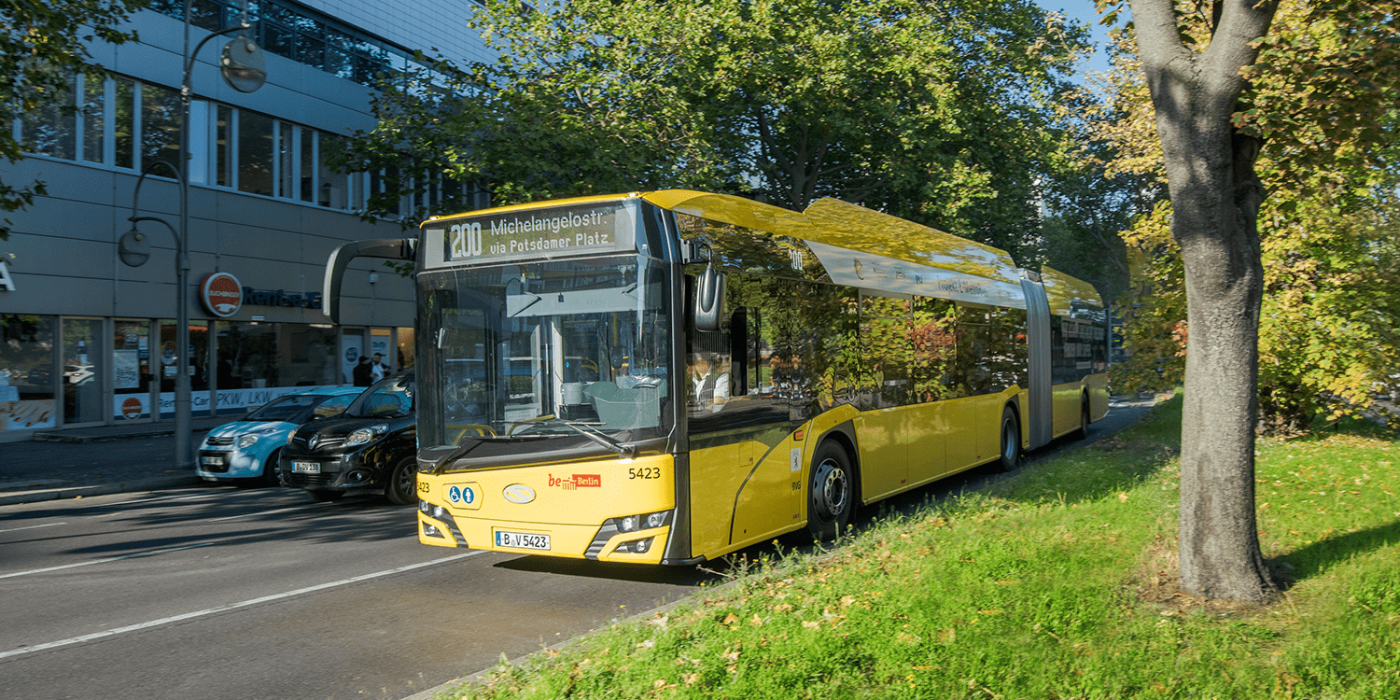Berlin cuts BVG budget for electric bus procurement
As the German publication Tagesspiegel writes, the budget for the procurement of electric buses in the current year is only around eight million euros instead of the planned 33.11 million euros. The figures are based on a report by the administration to the transport committee of the House of Representatives. It has been known since April that the governing parties CDU and SPD in Berlin want to save 130 million euros on bus and rail services this year. It has now emerged that the BVG’s electric bus procurement programme is also affected.
According to the Tagesspiegel report, the Berlin transport administration justifies the reduced budget with “delays in the construction of the new depot”, which will also delay the delivery of the planned e-buses. According to nd-aktuell, the specific issue is the depot in the Berlin district of Marienfelde. BVG gave the go-ahead for the planning and construction of the facility there in February. Specifically, a consortium of two companies is to construct the new building for 220 electric buses in Marienfelde.
Around 228 of BVG’s current fleet of 1,600 buses are battery-electric, 17 of which are articulated buses. Another 50 Solaris buses are to be added in the coming year. BVG aims to fully electrify its fleet by 2030, however, Tagesspiegel now writes that this goal is not considered realistic within BVG. “We all know that it won’t work to convert the bus fleet to electric drive by 2030,” an insider is quoted as saying. He went on to say that only 50 electric buses were ordered instead of the possible 344 due to the delay in the construction of the new depots on Marienfelder Säntisstraße and in Alt-Friedrichsfelde when the Solaris order was placed at the end of 2023.
At the beginning of the year, a consortium named ARGE BVG Säntis, consisting of ZECH Bau SE and SBRS GmbH, was awarded the contract by BVG to take on both the planning and execution services for the construction in Marienfelde. As is well known, SBRS is now a subsidiary of Shell Deutschland GmbH – the energy company took over the manufacturer, which specialises in charging infrastructure solutions for electric buses, electric trucks and even electric ships, in mid-2022. The Berlin consortium therefore not only involves a construction company and a charging infrastructure manufacturer, but also indirectly an energy company with experience in operating charging stations.
In February, BVG did not say how expensive the facility in Berlin-Marienfelde, not far from the Mercedes plant in Berlin, would be. There was also no mention of when the first electric buses are to be deployed there. However, the rough timetable was made clear in February in a statement from SBRS: the first “commissioning stage” for the consortium comprises the planning work and approvals. Only in a second commissioning stage will the necessary construction measures be realised and carried out in the years 2025-27 on the basis of the planning that has been completed, according to the SBRS.
A total of 209 charging points with an output of up to 150 kW will be created at the depot – these are the places for charging the electric buses overnight. As can be seen in a rendering and an animated video on LinkedIn, these will be mounted on racks in an open area so that the charging cables can simply be plugged into the buses parked there. There will also be nine “ultra-fast charging points” with up to 450 kW if the battery of a vehicle needs to be recharged within a short time. In addition, ARGE BVG Säntis will install a transfer station, twelve inverter stations and nine charging masts. There is also the option of charging double-decker buses.





0 Comments